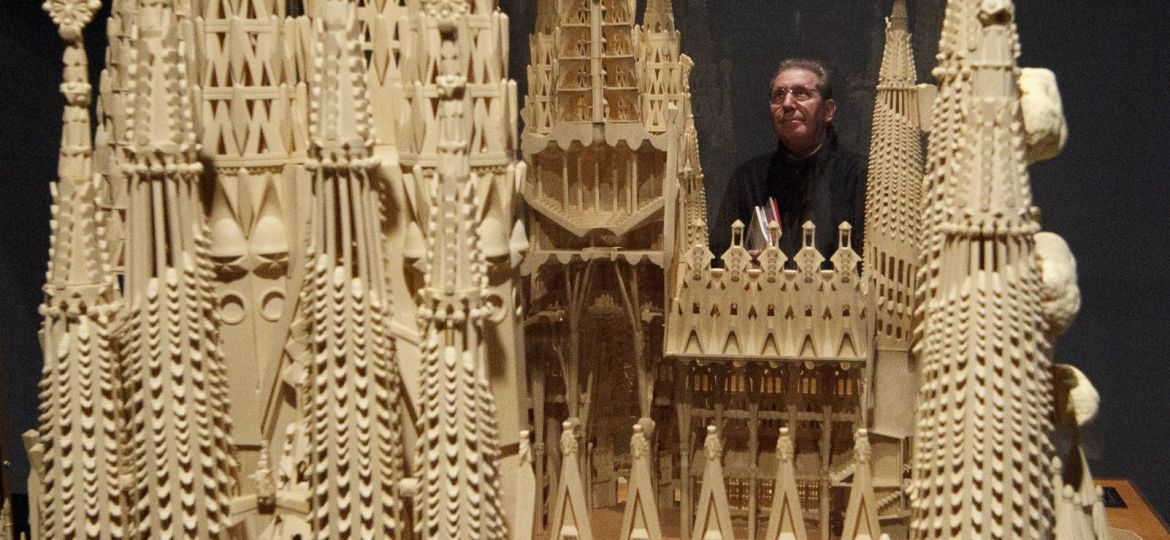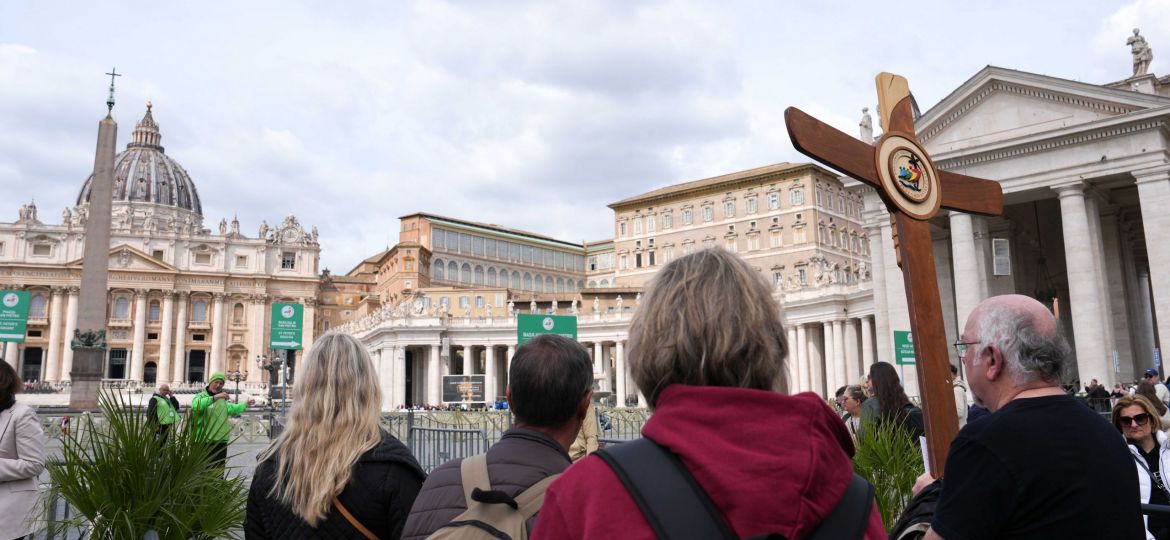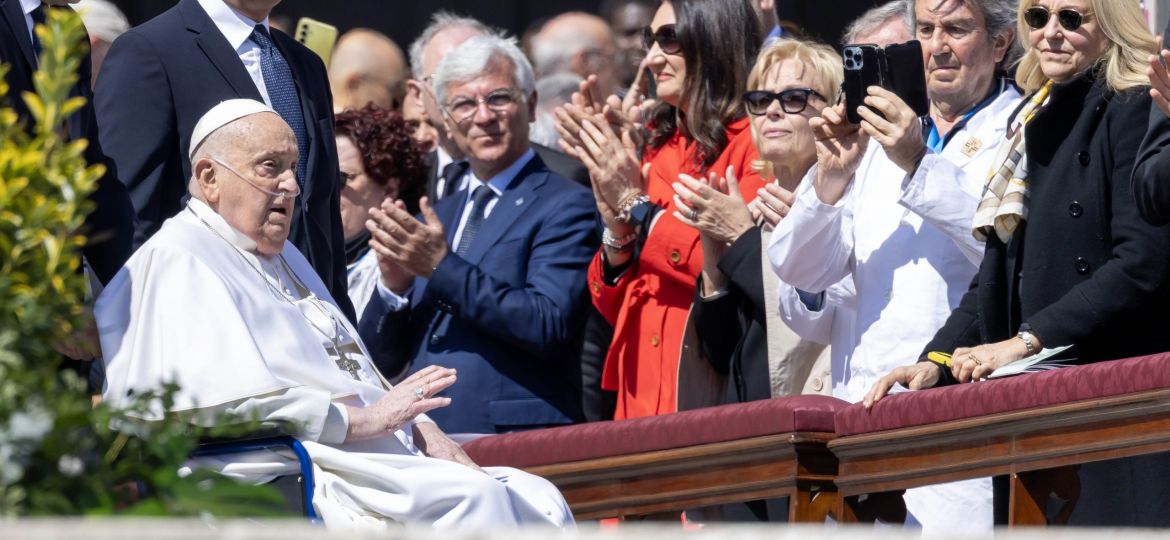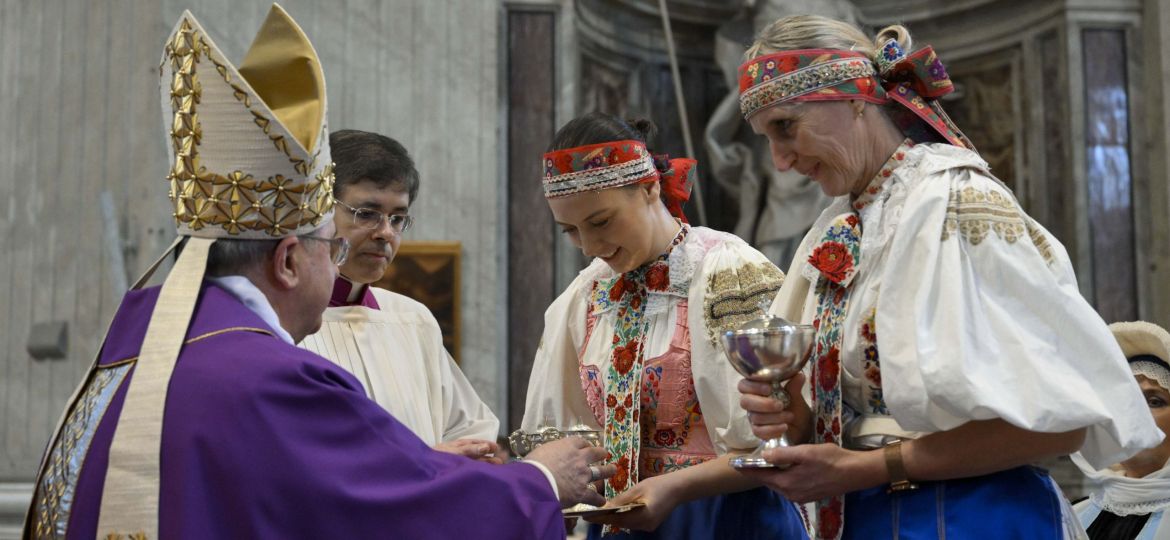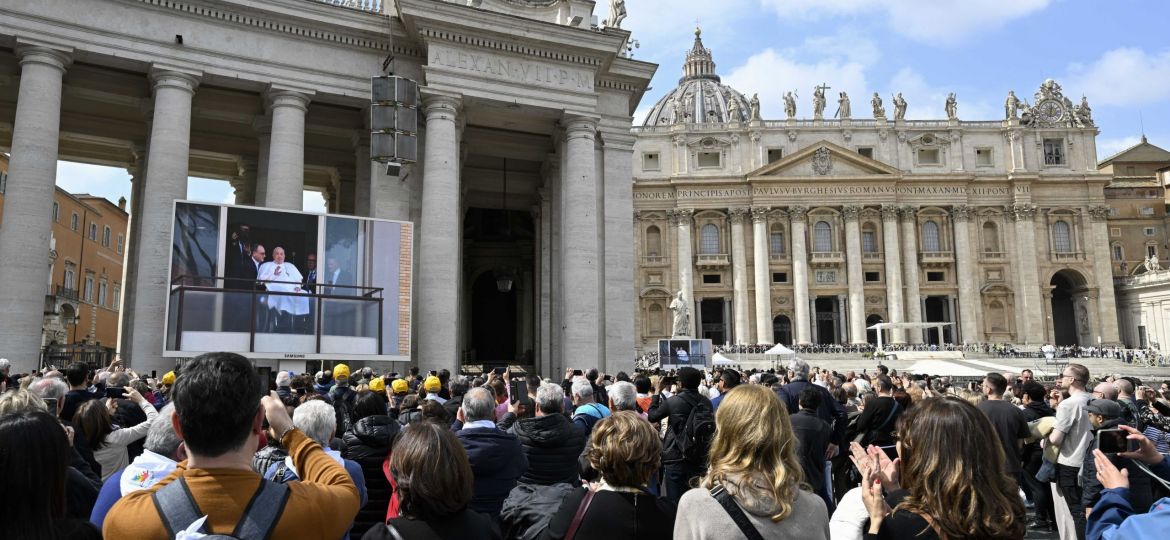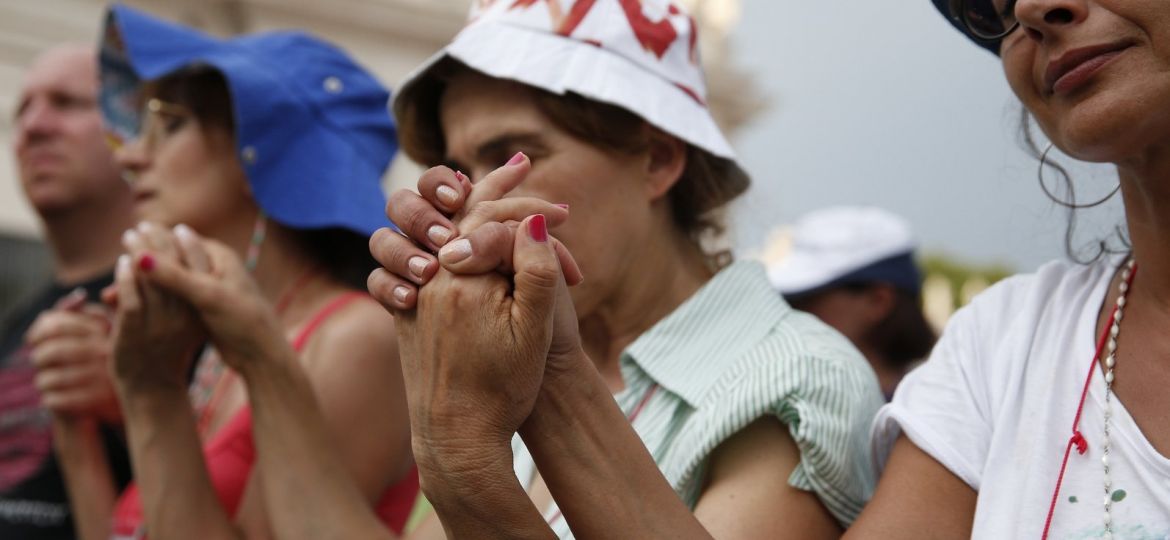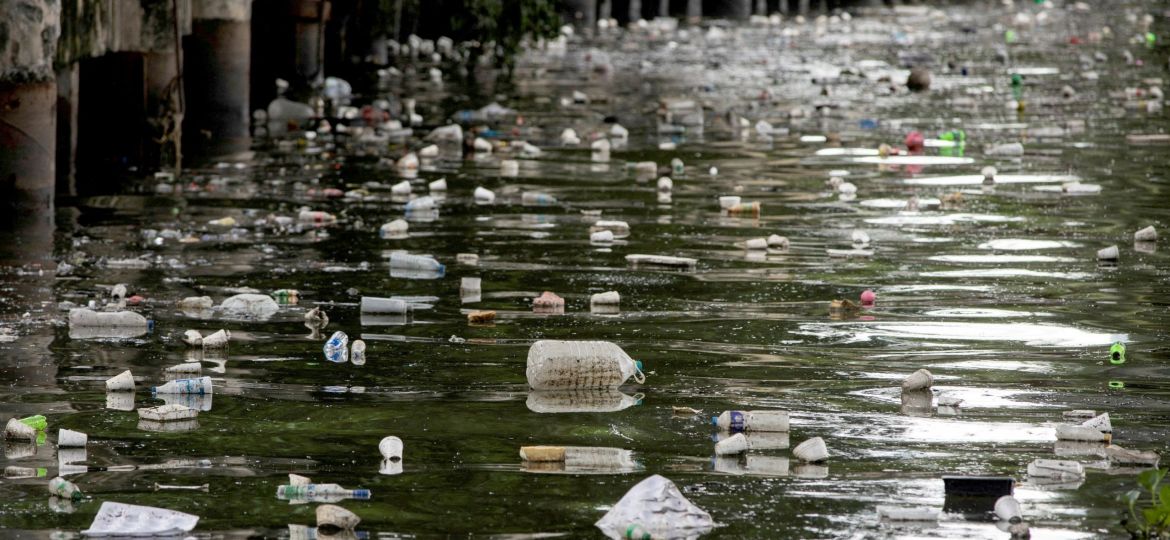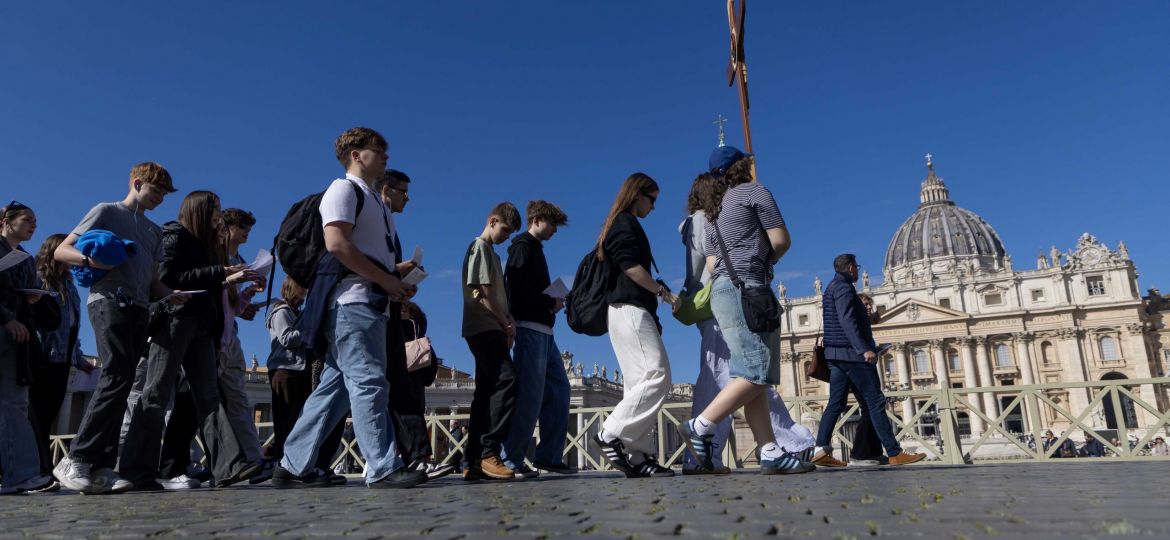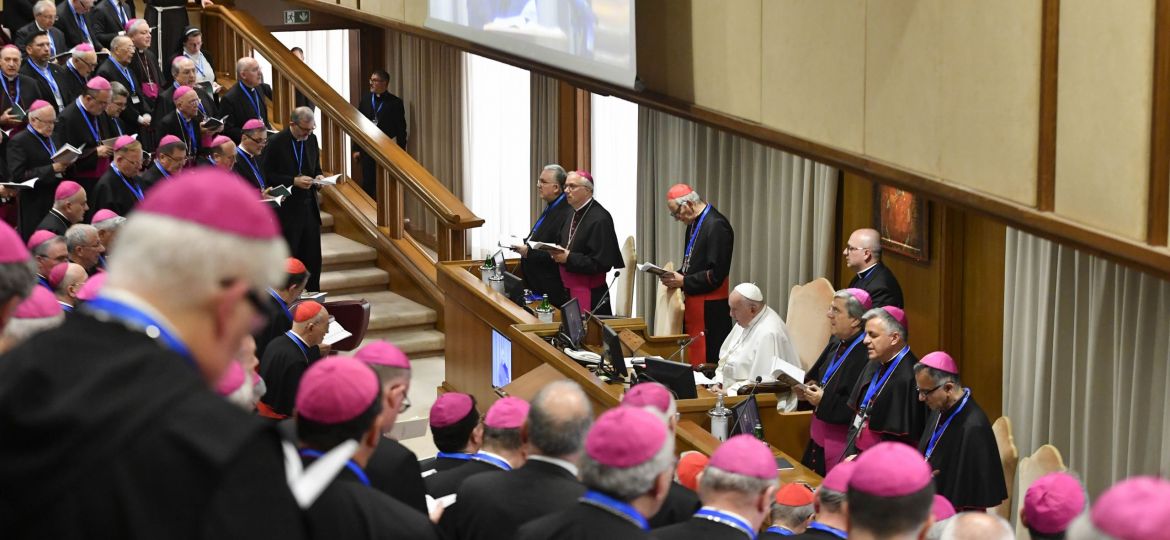Pope Francis advanced the sainthood causes of one woman and five men, including Antoni Gaudí, the Spanish architect who designed the Sagrada Familia Basilica in Barcelona, Spain.
Jesus loves people as they are, not based on their merit or righteousness, said the text for Pope Francis’ weekly general audience.
As Pope Francis continues his recovery at the Vatican, he is very slowly beginning to get back to his old routine of meeting with top Vatican officials, the Vatican press office said.
The American Heart Association ran an open training event next to the Vatican to teach emergency resuscitation as part of programming for the Jubilee of the Sick and Health Care Workers April 5.
Saying “yes” to God’s plan for one’s life does not mean everything will be easy, but it does mean knowing that God is there and will help, Pope Francis said.
During his second week back at the Vatican after a long hospitalization, Pope Francis continued to follow his doctors’ orders to stay home, avoid visitors, and keep up with respiratory and physical therapy, the Vatican press office said.
The Catholic Church is a new and reconciled humanity thanks to the gift of the Holy Spirit, which is the source of communion, harmony, and fraternity, Pope Francis wrote.
In 2015, Pope Francis shared an urgent message with the world. Writing in “Laudato Si’, on Care for Our Common Home,” he said the Earth “cries out to us because of the harm we have inflicted on her by our irresponsible use and abuse of the goods with which God has endowed her.”
Even when a person seems totally lost and unable to find a way back to God, the Lord is already looking for him or her, said the text for Pope Francis’ weekly general audience.
Christian joy is for everyone, not just for a privileged few, Pope Francis wrote.

